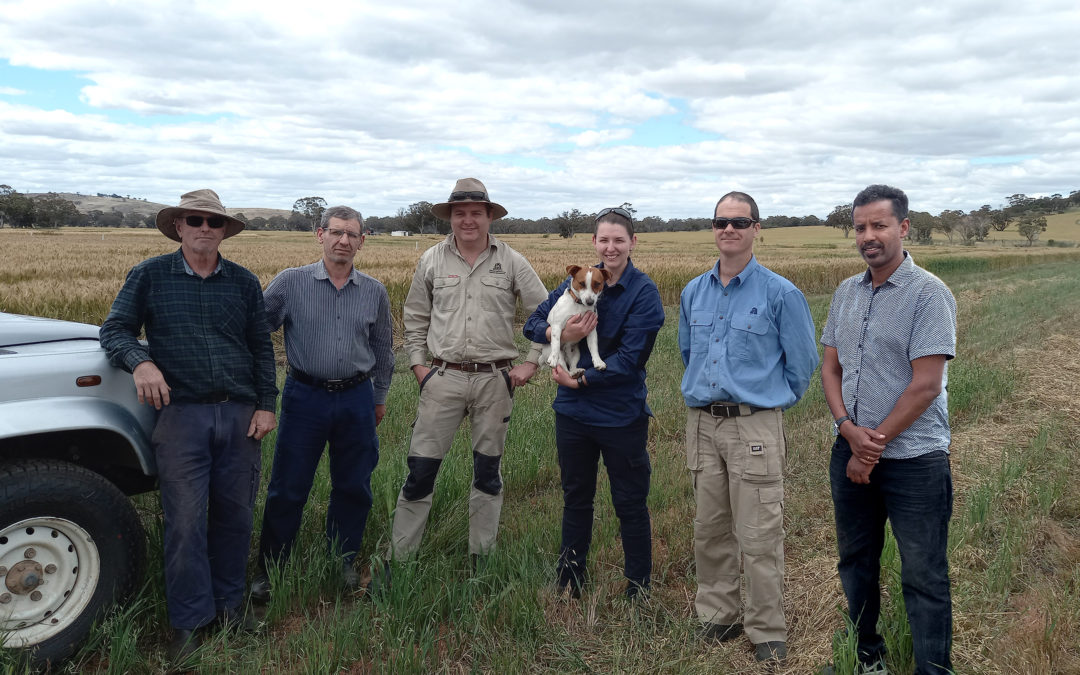There has been a change of guard leading the Department of Primary Industries and Regional Development’s (DPIRD) frost research, development and extension.
Department research scientists Amanuel Bekuma and Brenton Leske will lead the department’s agronomic and physiological frost research, now long time frost researcher Ben Biddulph has taken on a senior management role.
Dr Bekuma has worked closely with Dr Biddulph over the past two years, particularly on research that has shown the contribution of ice nucleating bacteria to frost damage.
Mr Leske recently returned to DPIRD, after completing his PhD on improving an understanding of crop physiological response to frost.
Grains director Kerry Regan said the new leads were well equipped to continue the department’s valuable work to improve the understanding and management of frost in WA farming systems.
“DPIRD is committed to research on managing frost in crops and Dr Bekuma and Mr Leske, alongside their teams, will continue the crucial research that helps growers with their crop management decisions,” she said.
“DPIRD’s field support team, including Nathan Height, Michelle Boyd and Ghazwan Al-Yaseri, with more than 25 years of combined frost trial experience, will all continue to work on trials at DPIRD’s Dale frost nursery, hosted by Bill and Anne Cleland and managed by Living Farm.
“Research scientist Dion Nicol will continue to lead complementary wheat agronomy research, work with industry and hold frost identification field days and pre-seeding workshops.”
Dr Biddulph has been appointed to the new position of Chief Primary Industries Scientist to develop strategies to strengthen DPIRD’s scientific capacity.
This includes working across DPIRD’s grains, livestock, horticulture and aquaculture investments to build on the existing collaborations with primary industries stakeholders and other research organisations.
Dr Biddulph said it was a great privilege to accept the role of Chief Primary Industries Scientist.
“I look forward to continuing working within primary industries on significant challenges that face us in terms of profitability, production and our social license to operate profitable sustainable production systems,” he said.

